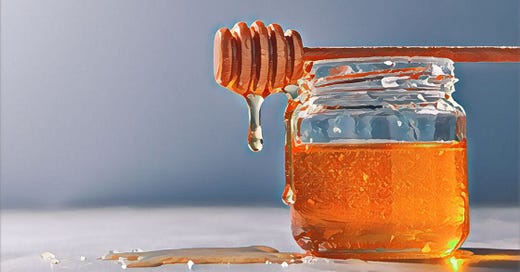Hi there,
I have a new article out with a genotype report on fructose intolerance. In general, fructose intolerance can be due to a genetic mutation or due to problems with intestinal absorption. While the genotype report doesn't show all of the possible rare mutations for hereditary fructose intolerance, it does include the five more prevalent mutations found in 23andMe and AncestryDNA data.
You'll also find Genetic Lifehacks articles on other genetic food intolerances, such as lactose, histamine, sucrose-isomaltase, tyramine, and mushrooms (ergothioneine). All of these SNPS are also in the Nutrition summary report or the Gut Health report.
If there are other food intolerances that you would like me to dive into, just let me know!
With some trepidation...
I also wanted to (carefully) bring up a topic that several members have reached out to me about. Over the past few months, I've received several questions about why certain rs ids were not incorporated into my articles. These members were reading LiveWello's daily newsletter and wanted to know why my articles didn't include what was in their articles.
For instance, I had a member question why certain rs ids were missing in my Ehlers-Danlos article that were included in the LiveWello's article on classical Ehlers-Danlos. Their article seems well written and includes two rs ids, labeled as being in COL1A2 gene and as common SNPs that increase the risk of classical EDS.
However, when I looked up the rs ids, I found that the SNPs are not in any way linked to Ehlers-Danlos and they were not even the COL1A2 gene (they are COL1A5). So I re-read LiveWello's recent articles and realized that they are likely all AI generated. The articles sound good, but the AI generates false information on important details -- such as the rs ids, the risk allele, and the research linking to a disease.
I never like to write about a competitor, but I wanted to give you a heads up in case you are also getting their emails.
With gratitude,
Debbie
Fructose Intolerance: Hereditary or Dietary?
Key takeaways:
~ Fructose intolerance can be hereditary (genetic) or due to intestinal absorption problems.
~ Genetic mutations in the ALDOB gene can cause hereditary fructose intolerance.
~ Carriers of a single ALDOB mutation can still process some fructose, but they may be prone to insulin resistance with higher fructose consumption.
New on Longevity Lifehacks:
Taurine Deficiency and Aging (06/27)
What I've been reading:
1. Vagus nerve inflammation contributes to dysautonomia in COVID-19
This is a preprint (not peer reviewed or published) showing that postmortem vagus nerve samples from people who died with an active Covid infection (mild, moderate, and severe infections) had detectable SARS-CoV-2 virus in the vagus nerve. This could be important if it is also true for vagus nerve viral infiltration in people with long Covid. Hopefully this research is published soon and followed up with more research for long Covid.
From the results: "Here, by detecting SARS-CoV-2 RNA we demonstrate that SARS-CoV-2 is able to infect vagus nerves which in turn causes functional impairment and decoupling from physiological modulators of respiration that predicts lethal disease outcome. The vagus nerve could be particularly susceptible to SARS-CoV-2 infection, as it is directly innervating the respiratory tract, which is the primary site of infection. Other entry routes could be direct axonal infection, since the receptors of SARS-CoV-2 are highly abundant on the vagus nerve, or through endothelial cells similar to CNS infection"
Consumer Reports has once again found that there are heavy metals in baby food, including the 'good' organic brands. Their advice is to give your baby a variety of different foods and different brands.
3. The inheritance of social status: England, 1600 to 2022
This PNAS study looks at genetics and genealogy over 400 years in England. The researchers were looking at how social interventions (e.g. compulsory schooling) affected social status. They found that there is a "strong familial persistence of social status across generations."
The researchers found that genetics plays a role. Their conclusion "Vast social changes in England between 1600 and 2022 would have been expected to increase social mobility. Yet people in 2022 remain correlated in outcomes with their lineage relatives in exactly the same way as in preindustrial England. The third surprising feature is that the correlations parallel those of a simple model of additive genetic determination of status, with a genetic correlation in marriage of 0.57."
My takeaway: We tend to marry people that are genetically similar to us (assortment in mating). On a broad scale, societal interventions like education bring the same boost to everyone.






Sorry, I meant to say Mast Cells affecting affecting my brain. I have suffered three times with cardiomyopathy, and seizures in the past with histamine reactions.
I want to thank you so much for all your articles, I now have some DNA data to show my allergist, cardiologist, and endocrinologist. I had printed up everything from my 23andMe DNA report. But this helps to minimize all the information I have.
I have been suffering for years, with symptoms that that cannot be substantiated with Tests. My endocrinologist after working with him for years and finally he decided to try the demographic writing test, and there was my the proof providing I was right about everything that was undiagnosed with all my symptoms. I have spent thousands of dollars on lab tests(thankfully I have a great insurance).
I was looking for help in decoding what my 23andMe report said. The last printable report really helps. I suspected I had MTHF variants, and there it was in your report. I have symptoms of Mast Cells affecting my heart in the current system, cardiac, and in my bones. Especially scary is when the mess sells affect my brain.